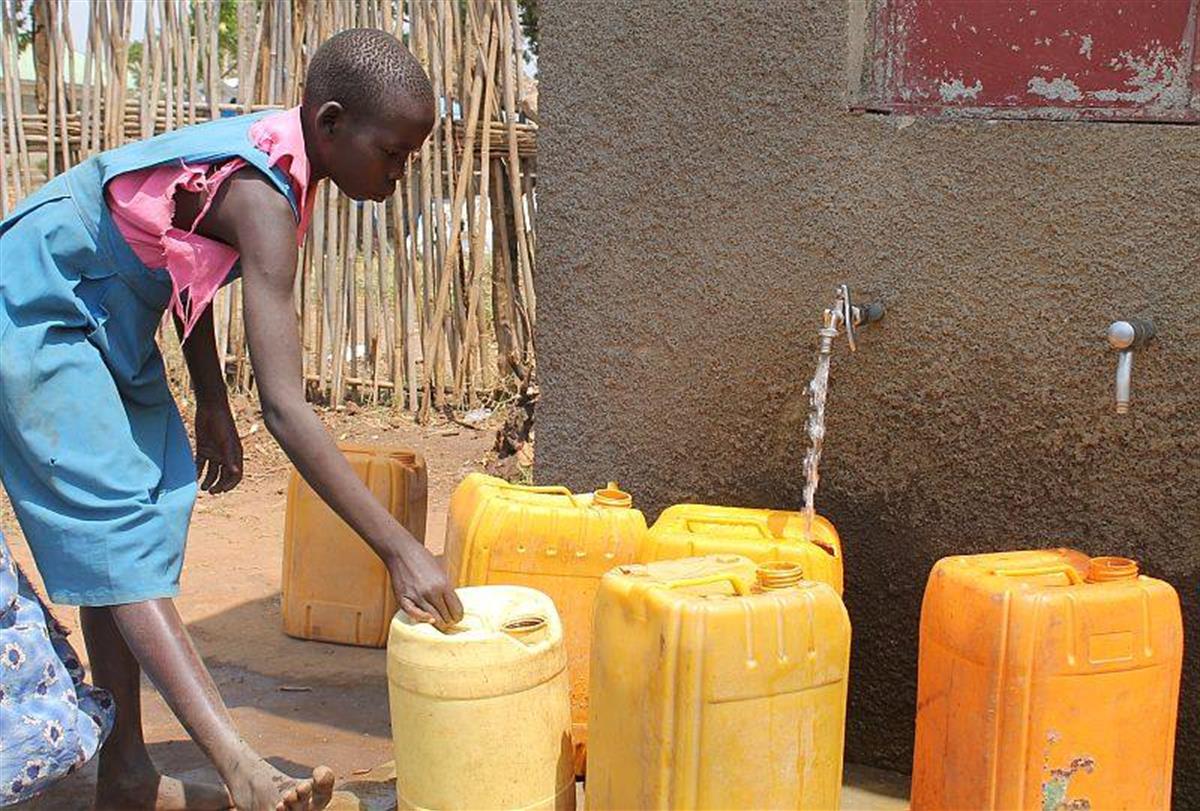
1,106 cholera cases including 38 deaths have been reported in Juba and Bor Counties in Central Equatoria and Jonglei States in July 2015. The rainy season is a critical period for a country such as South Sudan already facing a serious food emergency. Last year, 167 deaths were reported due to water-borne diseases. AVSI is working to face this emergency side-by-side with local communities.
The Ministry of Health of South Sudan, UNICEF, WHO and partners, such as AVSI, are increasing surveillance and prevention activities across the country, with particular focus on cholera hot spot area (Relief web,2015). The main problem is that children are very prone to the disease as their immune system is weaker compared with adults and cholera causes very rapid and severe dehydration due to excessive diarrhea and vomiting. Of the suspected cases fourteen per cent are children under age five.
UNICEF estimates that up to 5,000 children throughout the country are at risk from cholera, unless urgent action is taken. Due to this possible dramatic consequence, UNICEF with its implementing partners decided to undertake a comprehensive, multisectoral response in collaboration with the Ministry of Health, WHO and other partners. Cholera control interventions including enhanced surveillance and laboratory testing, communication using multimedia channels on cholera prevention and improving access to safe water, sanitation, and personal hygiene are ongoing with priority given to high-risk populations.
AVSI can rely on its expertise developed during the outbreak of cholera in July 2014 in Eastern Equatoria State when, in collaboration with WHO, MFS and ICRC, coordinated an emergency response based on distribution of drugs and development of a referral system to transfer the worst cases to the nearest health facilities. In order to prevent a new outbreak, in February 2015, AVSI started a new project on Cholera prevention funded by UNICEF and implemented in synergy with the ongoing projects funded by HPF (Health Pooled Fund) aimed at strengthening health facilities of Ikwotos County.
In addition, AVSI participated at the training on Cholera prevention and control conducted by UNICEF in partnership with the Ministry of Health (MoH) on community awareness including sessions of cholera prevention conducted in several schools. AVSI shared with its field offices the manual and materials received at the training course.
Whithin the EiE (Education in Emergency) project, AVSI is currently carrying out in Lakes State cholera awareness sessions and health promoting activities focusing on the eight schools in Cueibet County. The participation in the sessions is high, with an average of 50 participants in each school. AVSI is using posters from UNICEF to demonstrate ways of contracting cholera and making oral rehydration solutions at home. AVSI is also distributing bars of soap to pupils to support their personal hygiene.
Altough to date cholera cases have not been reported in Lakes State, the risk of infection is high. Indeed, some of the water pumps in the areas have holes that allow leakage of dirty water to mix with clean ones. Teachers at Bahrgel Primary school reported that sometimes snakes enter through these holes and die in the water. Most of residents even complained about lack of access to chlorine as they are not sure their water is that safe for drinking. To make it worse, water pumps are far from other schools like Mayath Girl, so many children are not able to get water for their personal hygiene. This is why AVSI will continue to raise awareness in the the community of Cueibet County by conducting cholera prevention and hygiene and sanitation sessions during the month of August.